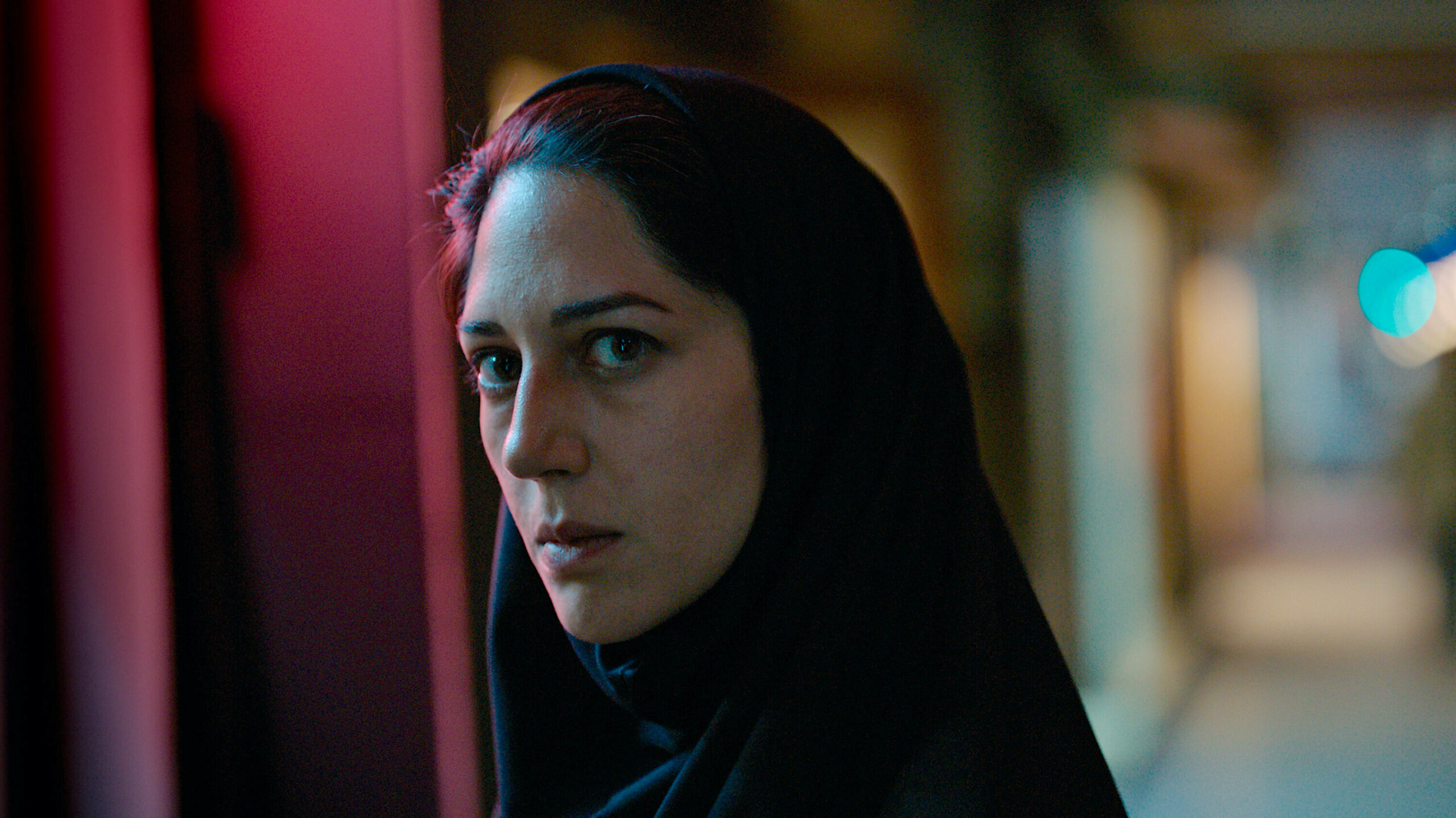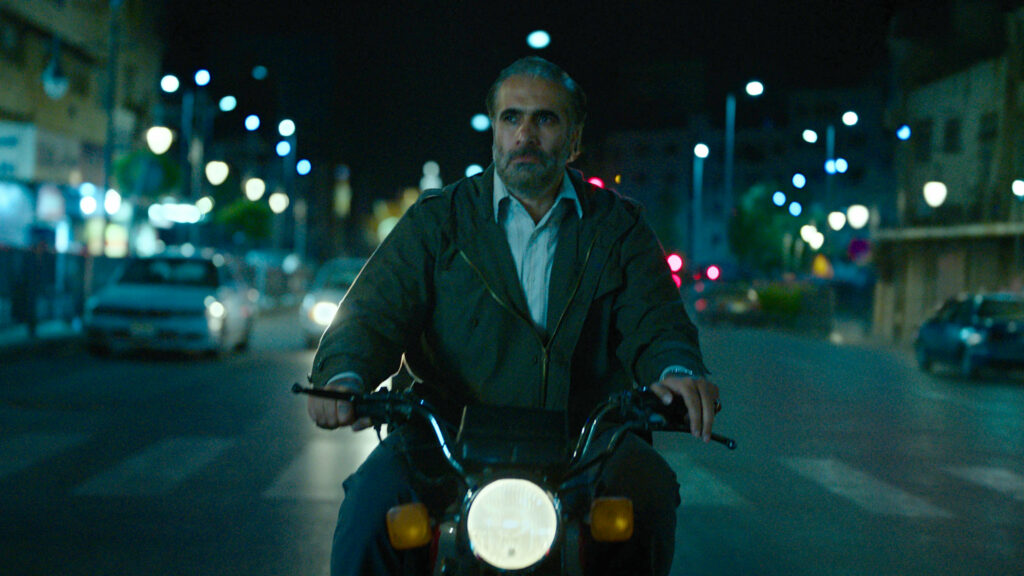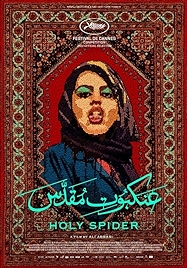Between August 2000 and July 2001, Iranian serial killer Saeed Hanaei murdered 16 women in the holy city of Masshad, Iran, in what he claimed was a jihad against decadence – Hanaei’s victims were either prostitutes or drug users or both.
Holy Spider tells the story of the “spider killer” – he lures them to his place, where he kills them, hence the name – and the female journalist who set about tracking him down, in the face of the attitude of male journalists, male cops and male imans, who are barely capable of registering what’s going on as a crime, because it’s druggies and whores who are the victims, but even more because it’s women.
Men are grim in Holy Spider, but the patriarchy is grimmer. Ali Abbasi’s film starts grimly, with Hanaei’s first victim strangled till the veins burst in her eyes. Her dead body is then flopped over the back of his motorbike and later dumped on waste ground. And it regularly returns to Hanaei dispatching further victims in graphic detail. But between these shocking scenes, as journalist Rahimi (Zar Amir-Ebrahimi) tries to go about her work, he also patiently details the obstructions men put in her way – the fellow male journalist who doesn’t initially take her seriously, the male cop who hits on her every time she talks to him, the guys on the front desk at a hotel who won’t let her check in and order her to cover her hair. “This is a holy city,” they chide.
Women are patrolled and controlled in Holy Spider, and Hanaei isn’t an aberration, but an operative in a network of patriarchal domination.
This is no whodunit. We know who it was from the outset and Abassi spends a considerable amount of time with Hanaei (Mehdi Bajestani). He’s a war veteran who came back from fighting a changed man, a father who loves his kids, who works hard, who has friends. He genuinely believes he’s doing god’s work.
Abassi says he was driven to make the film after being shocked at the public reaction when the real Hanaei was caught – so much support, to the extent of crowds chanting outside the courtroom. And that’s his target, not the man but the society that enabled him and then defended him.
Shocking though the imagery is, the most upsetting and dramatically punchiest moments in the film come when first Hanaei’s wife, Fatima (Forouzan Jamshidnejad), and then his son, Ali (Mesbah Taleb), stand up for him. “Your dad hasn’t done anything wrong,” mum tells her son. “He sent some depraved women to hell.” In the film’s concluding, gruesome moments, the extent to which Ali has taken all this on board becomes chillingly clear.
It’s quite a change of gears for Abbasi if you only know him from Border, an incredibly weird parable about intolerance set in modern Denmark, where a genuine folkloric troll works as a security guard who can smell the difference in people.
Zar Amir-Ebrahimi also experienced a change of gears making this film. She was working on it originally as casting director – one of several strings to her bow – before the actress who was initially meant to star dropped out at the last minute. So Amir-Ebrahimi stepped up, and she’s very convincing as the plot switches from the lighter end of everyday misogyny to the darker, when Rahimi realises she’s going to have to become a honey trap if she’s going to get her man.
The film got a seven-minute ovation at Cannes in 2022 when it was shown there, and Amir-Ebrahimi won the best actress gong, the first Iranian woman to be so honoured. For her pains she was branded a blasphemer by the Iranian government, who called the film a “shameless obscenity” and the honours “an insulting and politically motivated move”.
Abassi, Amir-Ebrahimi et al clearly touched a nerve.
Holy Spider – Watch it/buy it at Amazon
I am an Amazon affiliate
© Steve Morrissey 2023


